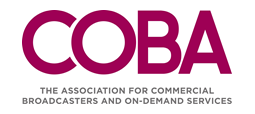Our Sector
COBA members play a vital role in the success of the UK television sector, which is increasingly a “mixed ecology” of public and private sector broadcasters and on-demand services. The sector is one of the fastest growing part of the UK television industry:
- The multichannel sector is worth £4 billion a year to the UK economy, and has been crucial in establishing the UK as a leading global television hub, home to more channels than any other European country.
- The sector has doubled its direct employment in the UK over the last decade.
- Multichannel broadcasters invest £1.1 billion a year in UK television production, up 75% 2011 levels. They now account for around 25% of all investment in UK television production.
Economic Investment
Multichannel broadcasters and on-demand services are one of the fastest growing parts of the sector. They have grown turnover significantly over the last decade, and have doubled direct UK employment in the last 10 years. They are worth £4 billion a year to the UK economy (GVA) and employ 12,000 people.
Content Investment
COBA members are investing in UK production at record levels. In 2017, they spent £1.1 billion on UK TV production, up 75% on 2011. They now account for around 25% of all investment in UK television production.
Share of TV market
COBA members operate hundreds of services and are available on all UK platforms. They provide audiences with a wide range of content, including news, factual, sport, comedy, entertainment, drama, and children’s.
In addition to traditional platforms, COBA members are also leading innovators, with services on new VOD, online and mobile platforms.
Non-PSB broadcasters have a 28% of audience share in UK multichannel homes according to Ofcom’s 2010 Communications Market Report.
Video-on-Demand
COBA members provide audiences with VoD services in addition to their linear television channels, providing innovative content from trusted sources. COBA’s Statement of Practice for Video-on-Demand (VoD) services is a commitment by on-demand content providers to make child protection a priority.
What is the Statement of Practice?
The Statement is a commitment by companies that sign it to make child protection a priority for television programmes that viewers watch on-demand. It includes offering audiences child protection tools, such as pin protection, and information to help parents assess the suitability of programmes, wherever possible. The Statement includes a commitment to the highest standards in on-demand programmes, comparable to those on broadcast television channels.
What does the Statement cover?
The Statement covers on-demand programmes which are accessed through television platforms. It covers “catch-up” programmes that have previously broadcast on television channels. It does not cover on-demand programmes that are accessed via the internet, or from outside the UK. It cannot guarantee that audiences will always be able to access the full range of protection tools. These may, for example, be limited by the technology of the television platform.
Who has signed the Statement?
Signatories include many of the major on-demand services in the UK. In alphabetical order, they are: A+E Networks, Comedy Central, Discovery Networks, Fox International Channels, MTV, NBCUniversal, Nickelodeon, Sky, Sony Pictures Television Networks, The Walt Disney Company, and Turner.
The complete VoD Statement and a copy of the guide can be found here:
COBA Latest
COBA, the industry body for commercial broadcasters and on-demand services, has strongly welcomed Ofcom’s decision not to change rules governing the amount of advertising public service channels can show. COBA and others raised concerned that the proposed changes to allow more advertising on ITV and Channel 4 would result in 27.5 minutes of public service […]
Broadcasters have slammed Ofcom’s proposed changes to advertising rules which they say will result in the loss of nearly half an hour of news coverage a day. A new report published today from leading broadcasting association COBA suggests that plans to allow more advertising on ITV and Channel 4 would result in 27.5 minutes of […]
